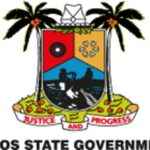From Lagos to London: Africa’s economic powerhouse makes historic debut at Lord Mayor’s Show
Nov. 15, 2023
Nigeria’s Lagos state marked a historic moment by making Africa’s inaugural appearance at the renowned Lord Mayor’s Show in London – an annual procession, steeped in 800 years of tradition, that celebrates the history and commerce of the city.
The debut signals the state government’s ambitions to become a global financial hub and to attract foreign investment, particularly crucial as federal authorities grapple with revitalizing Nigeria’s economy, which faces challenges such as mounting debts, unprecedented inflation rates, and a sharp decline in the local currency.
Organizers of the Lord Mayor’s Show said Lagos was invited to participate in the London procession because of the state’s “growing economic prominence.”
Lagos Governor Babajide Sanwo-Olu, who led Nigeria’s contingent to the London parade on Saturday, told CNN his state’s participation was an invitation to the world to explore “the myriad of opportunities” available in Lagos.
Among the Lagos contingent were the traditional Eyo masquerades who take part in the famed Yoruba Eyo festival in the state.
Among the Lagos contingent were the traditional Eyo masquerades who take part in the famed Yoruba Eyo festival in the state.
He told CNN: “Let it be known that Lagos State, with its rich cultural heritage and unwavering spirit, is not just participating in a historic procession; it is striding into the global spotlight, inviting the world to witness its dynamism, its progress, and the myriad of opportunities available to all.”
“Lagos isn’t just open for business — it’s open for transformative, groundbreaking projects that shape the future,” he added.
A global financial center
Lagos is Nigeria’s former capital city and has remained the economic nerve center of the West African country – contributing 30% to its GDP and more than 50 percent of Nigeria’s port revenues, according to figures released by the state.
However, it faces many issues, not least its struggles with inadequate infrastructure, such as roads, public transport, and utilities. Lagos has also experienced rapid population growth, leading to issues such as overcrowding, a strain on infrastructure, and increased demand for basic services.
However, many backers believe that Lagos has the potential to evolve into a global financial hub capable of drawing substantial foreign investments into Nigeria.
Aigboje Aig-Imoukhuede, co-chair of the newly inaugurated Lagos International Financial Centre Council (LIFC) told CNN Lagos was now ready to position itself with global players.
The “market infrastructure is in place,” he said adding, “The problem was the management of the market. Our market unfortunately suffered very poor management for the last eight years. But things have changed.”
The yearly event commemorates the induction of the new Lord Mayor of the City of London, and Lagos had a colorful procession showcasing the best of its arts and cultural heritage.
Huddle for investors
Amid the scramble for foreign investments into Nigeria, myriad challenges however abound for potential investors.
According to the US Department of Commerce, foreign exchange restrictions and the rising cost of doing business in Nigeria were some of the drawbacks of investing in the country.
Last year, flights between Nigeria and the United Arab Emirates were stopped after Dubai’s Emirates airline suspended its operations in the country citing trapped revenues.
In a similar move, British drugmaker GSK said this year it was ending its business in Nigeria, partly due to soaring business costs.
“Focus on the inflation rate, bring it down,” he urged the Nigerian Central Bank. “A low stable inflation rate automatically signals a stable currency … and that’s the job half done,” he told CNN.
Courtesy CNN








